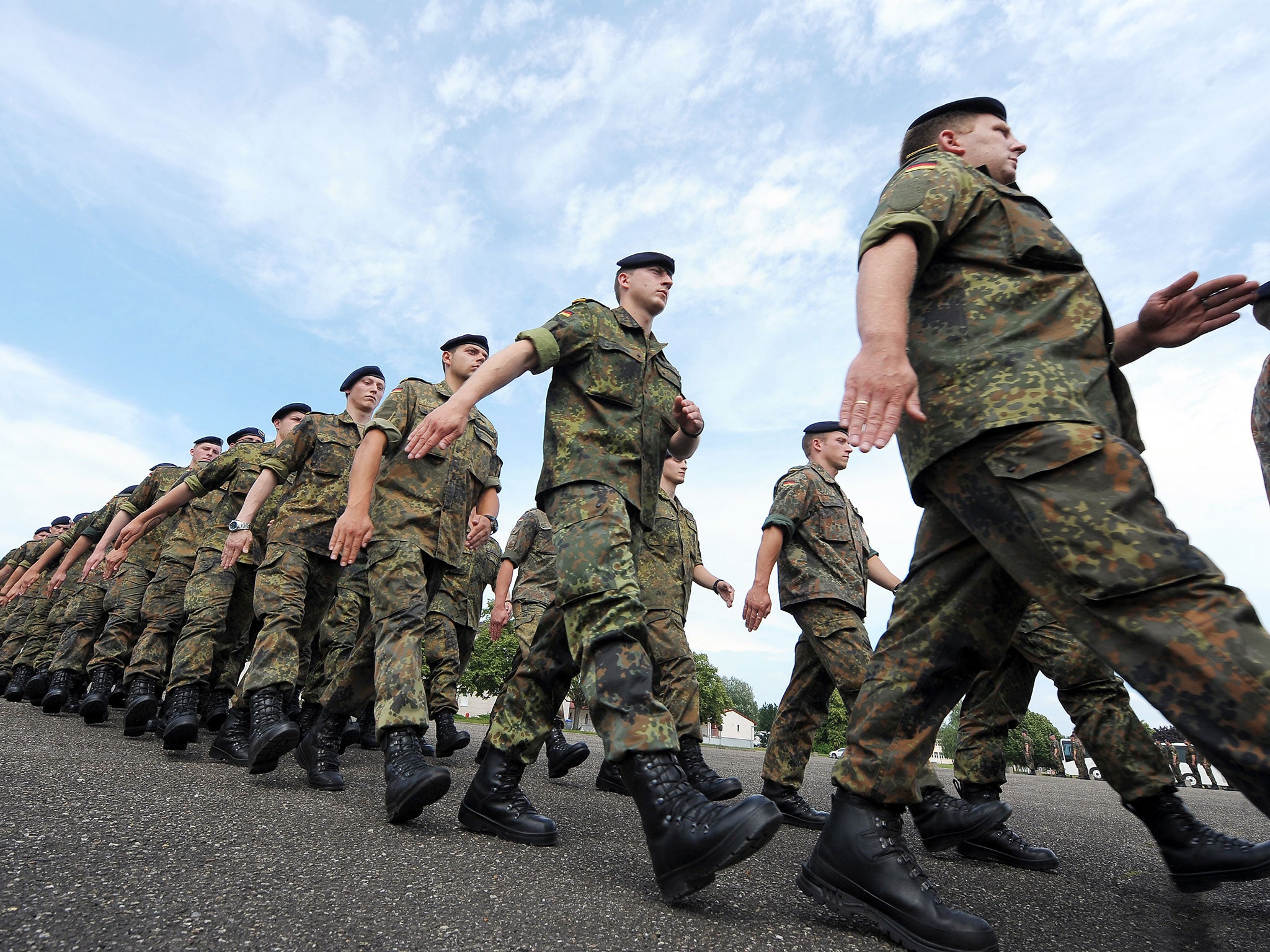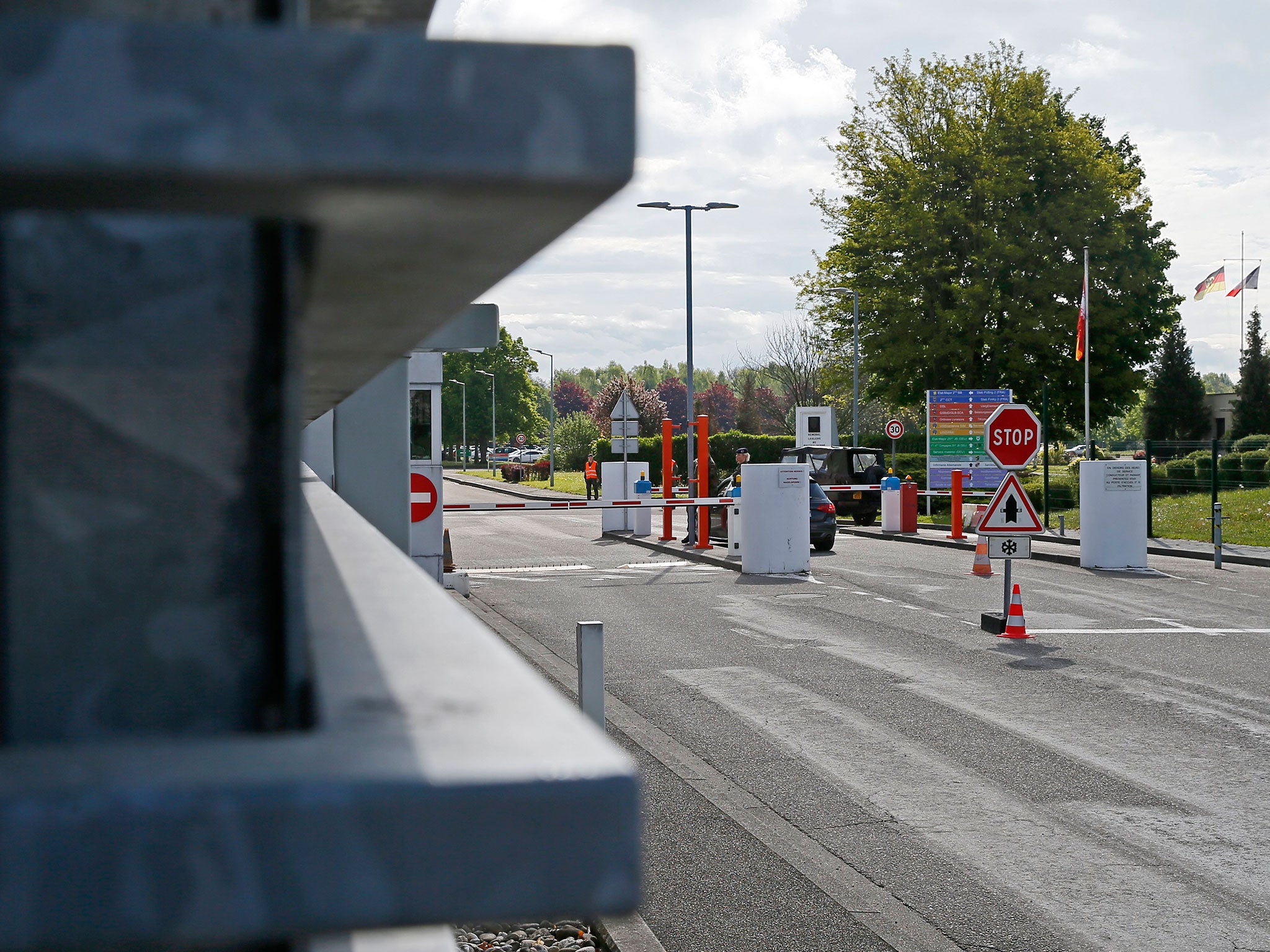German lieutenant who posed as refugee in 'false flag' terror plot could be part of neo-Nazi army network
Swastika carved into gun found in suspect's room, along with Nazi-era memorabilia

Your support helps us to tell the story
From reproductive rights to climate change to Big Tech, The Independent is on the ground when the story is developing. Whether it's investigating the financials of Elon Musk's pro-Trump PAC or producing our latest documentary, 'The A Word', which shines a light on the American women fighting for reproductive rights, we know how important it is to parse out the facts from the messaging.
At such a critical moment in US history, we need reporters on the ground. Your donation allows us to keep sending journalists to speak to both sides of the story.
The Independent is trusted by Americans across the entire political spectrum. And unlike many other quality news outlets, we choose not to lock Americans out of our reporting and analysis with paywalls. We believe quality journalism should be available to everyone, paid for by those who can afford it.
Your support makes all the difference.A cell of suspected right-wing extremists operating within the German army are being investigated as the probe into an alleged terror plot widens.
Prosecutors are investigating a group of up to five people surrounding a soldier accused of posing as a Syrian refugee to carry out a “false flag” attack.
The suspect, named only as Franco A, was arrested after police traced a loaded gun he stashed at Vienna International Airport but investigations at his barracks have revealed signs of a wider network.
An assault rifle case carved with a swastika was found in his room, where the letters HH [Heil Hitler] were inscribed on the wall and a Nazi-era pamphlet depicting a Wehrmacht soldier was discovered.
Germany’s RND media group published photos of the evidence, which forms part of a report drawn up by the ministry of defence.
Gerd Hoofe, the defence secretary, said there were also “indications of possible ammunition loss or theft” at Franco A’s barracks in Illkirch-Graffenstaden, France.
He did not raise any alarm over extremism in the army, despite writing a master’s thesis on “political change and subversion strategy” at a French university in 2014 that was found to contain far-right thinking.

Franco A appeared at his barracks on time and completed all courses, even while dashing back to Bavaria to collect welfare payments as part of his double life as a refugee.
The lieutenant registered in Giessen, Hesse, on 30 December 2015 – as Germany was overwhelmed by the arrival of almost a million asylum seekers - then submitted an asylum application at Zirndorf in Bavaria in January last year.
He created a fake persona under the name David Benjamin, telling immigration officials he was a Damascus fruit seller from a Christian family with French roots, German media reported.
No doubts appear to have been raised over the credibility of the 28-year-old’s background, despite him speaking mainly French with a smattering of Arabic from a language course.
The ruse was only discovered when Franco A was arrested in Austria after returning to retrieve an unregistered 7.65mm pistol from a toilet at Vienna International Airport in February.
A fingerprint check revealed his fake identity as a Syrian refugee, but when “David Benjamin” failed to answer a court summons in Austria, a wider investigation was triggered.
He had a list of five potential targets for the attack, the Tagesspiegel newspaper reported, including former President Joachim Gauck, justice minister Heiko Maas, a prominent left-wing politician and the Berlin Center for Political Beauty.
If the plan had succeeded, his fingerprints would have registered on the refugee records system and led investigators to his false identity as a Syrian asylum seeker, turning fresh scrutiny on migrants in Germany.
“These findings, as well as other evidence, point towards a xenophobic motive for the soldier’s suspected plan to commit an attack using a weapon deposited at Vienna airport,” prosecutors said.
A 24-year-old student suspected of being an accomplice in the plot, Mathias F, has also being arrested, with explosives found at his home.
Germany’s federal prosecutor’s office has taken over the terror investigation, which has sparked probes in the office for migration, interior ministry and military.
Ursula von der Leyen, the defence minister, cancelled a scheduled visit to the US on Tuesday and summoned military commanders to discuss the plot and other recent scandals including sexual abuse and hazing at another military base.
After attacking “weak leadership” she ordered the most senior 100 generals and admirals to attend a meeting in Berlin on Thursday.
“We have to ask systematically how someone with such clear right-wing extremist views, who writes a master's paper with clearly nationalistic ideas ... could continue to pursue a career in the Bundeswehr,” Ms von der Leyen told reporters.
She plans to travel to Illkirch for an update on the investigation as some politicians pushed back against her criticism of the military.
Henning Otte, a fellow member of Angela Merkel’s conservative CDU/CSU lawmaker and head of the parliamentary defence committee, told Reuters the military had “no fundamental problem with radicalism or abuses”.
But Germany's military intelligence agency has recorded 275 suspected case of right-wing extremists in the military's ranks, including some dating back to 2011 and 53 cases first identified this year.
The government said it was “leaving no stone unturned” in the probe, which comes as Germany gears up for federal elections in September.
Join our commenting forum
Join thought-provoking conversations, follow other Independent readers and see their replies
Comments